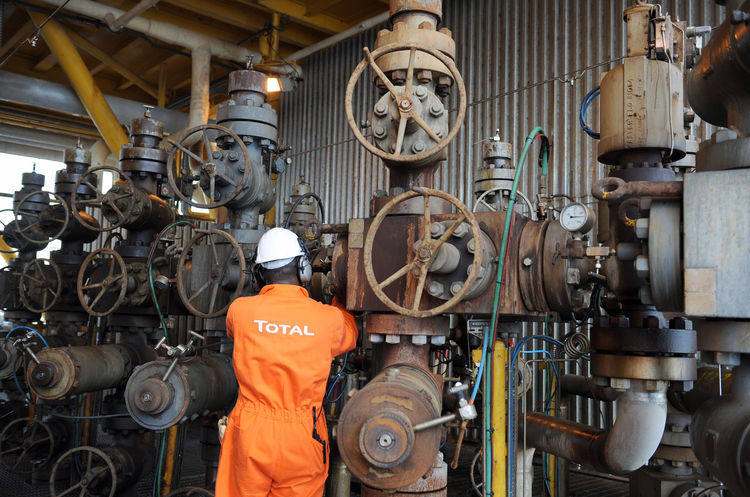The total loss of the Nigerian National Petroleum Corporation from January to November 2015 has been put at N255.28bn, as against N240.98bn which it recorded from January to October in the same year.
An analysis of the corporation’s financial report for October and November 2015 showed a difference of N14.3bn between the two months.
The oil firm’s latest financial report also showed that the NNPC had made dollar payments totalling $607.8m to the Federal Accounts and Allocation Committee from January to November 2015.
On the naira payments to the Federal Government, the corporation said, “The sum of N933.1bn for domestic crude oil and gas and other receipts was paid to the Federation Account from January to November 2015.”
The report further stated that the country’s refineries operated at zero capacity utilisation in the month of November.
It also stated, “The group operating revenues after subsidy for the months of October and November 2015 were N173.56bn and N155.10bn, respectively. This represents 56.72 per cent and 50.68 per cent, respectively of monthly budget. Similarly, operating expenditures for the same periods were N185.78bn and N169.39bn, respectively, which also represented 69.55 per cent and 63.42 per cent, respectively of budget for the months.
“Operating deficits of N12.22bn and N14.29bn for October and November 2015, respectively were attained as against monthly budgeted surplus of N38.91bn. (The) 59.63 per cent of YTD (year-to-date) NNPC deficit of N255.278bn is mainly accounted for by claimable pipeline repairs/management cost of N95.37bn and crude and product losses of N56.68bn due to vandalised pipelines.”
On the performance of refineries, the report stated that the total crude processed by the three facilities for the month of November 2015 was zero.
The refineries are Warri Refining and Petrochemical Company, Port Harcourt Refining Company and Kaduna Refining and Petrochemical Company.
The NNPC said the total export proceeds of $402.55m were recorded in November, 2015 with proceeds from crude oil export sales amounting to $296.99m or 73.78 per cent of the dollar payment compared with 72.97 per cent contribution in previous month (October, 2015).
It stated that gas export sales and Nigeria Liquified and Natural Gas feedstock amounted to $105.53m, which was 26.22 per cent contribution compared with 18.97 per cent contribution in the prior month of October 2015.
“The remaining $0.03m was attributable to other dollar denominated receipts by the corporation and a total of $607.8m has been paid so far to FAAC in the year 2015 from sales of export oil and gas,” it said.
The national oil firm explained that the downward trend in global oil prices had continued to affect the energy industry worldwide with average crude price of $44.29 per barrel on dated Brent benchmark throughout November, 2015.
Meanwhile, only two of the nation’s refineries in Kaduna and Port Harcourt met the 90-day fast-track ultimatum, which elapsed on Thursday, December 31, 2015.
The Minister of State for Petroleum Resources and Group Managing Director of the NNPC, Dr. Ibe Kachikwu, had recently given the 90-day ultimatum for the revival of the refineries.
Three of the nation’s four refineries in Warri, Kaduna and Port Harcourt had resumed production of refined petroleum products in July after undergoing rehabilitation, but they were shut down in August, September and October, respectively.
The Kaduna refinery and one of the two plants in Port Harcourt have, however, come back on stream.
The Kaduna refinery, which has a capacity of 110,000 barrels per day, had two weeks ago resumed production, almost four months after it was shut down as a result of lack of crude supply caused by the repair of the pipeline pumping crude to the plant.
The 150,000bpd refinery in Port Harcourt was said to have started production on Sunday, while the 60,000 bpd refinery, the nation’s oldest refinery, remained shut down as of December 31.
The 125,000 bpd Warri refinery, which is a complex refinery with an associated, but now moribund, petrochemical plant designed to produce polypropylene and carbon black, has yet to come back on stream.
The Managing Director, Port Harcourt Refinery Company Limited, Mr. Bafred Enjugu, told our correspondent on Thursday that “we have resumed production since the morning of December 27, 2015.” But no further details were given.
Another source at the Port Harcourt refinery, who confirmed to our correspondent that the plant resumed operation on Sunday, said, “We are streaming area by area. We started with Area 1. We started going to storage of refined products since Sunday. But the old one is not yet up.”
The PHRC MD had last week told our correspondent that the refinery operated until October 13 when they had a blip with their main column, adding that it had been fixed all locally and they were in pre-commissioning mode with start up to follow.
The nation’s refineries in Warri, Kaduna and Port Harcourt have a combined installed capacity of 445,000 barrels per day.
Kachikwu had recently said in the next 24 months, Nigerians would see a positive dramatic turn in the refinery model in the country.
The NNPC had in August cancelled the contract for the delivery of crude oil to the nation’s refineries in Warri, Port Harcourt and Kaduna, due to exorbitant cost and inappropriate process of engagement.

 Forex3 weeks ago
Forex3 weeks ago


 Naira2 weeks ago
Naira2 weeks ago
 Billionaire Watch2 weeks ago
Billionaire Watch2 weeks ago




 Naira2 weeks ago
Naira2 weeks ago




 Naira2 weeks ago
Naira2 weeks ago




 Naira1 week ago
Naira1 week ago




 Naira4 weeks ago
Naira4 weeks ago




 Naira3 weeks ago
Naira3 weeks ago






















